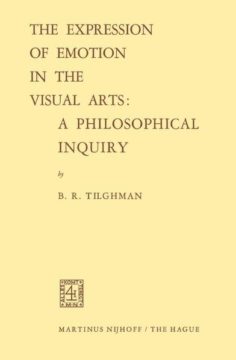The philosophy of art, aesthetics, is here understood to be something distinct from both art appreciation and art criticism. The philosophy of art is never theless dependent upon the existence of appreciation and criticism because it is out of reflection upon these that the uniquely philosophical problems of art arise, problems that reflect puzzlement about what is involved in under standing, enjoying, describing, and evaluating works of art. Hence the philo sophy of art must presuppose at least some measure of understanding and appreciation of particular works of art and if such understanding and appre ciation are lacking the philosopher is in no position to supply them. It can not be a philosophical task to undertake a Defense of Poesie against either the philistine or the tyrant. The philosopher is not the one to convince us that art is a Good Thing, that paintings are worth looking at, poems worth reading, and music worth listening to, if for no other reason than that philo sophical theory and argument are no substitute for taste and sensibility. My position here is the now unexceptional one that philosophical problems are essentially conceptual problems and while the philosopher of art cannot produce aesthetic sensibility and appreciation where these do not exist, he can give us understanding of the concepts relevant to artistic appreciation and thereby help us to see our way through the conceptual confusions that have generated the philosophical puzzles surrounding art, its appreciation and criticism.
- Veröffentlicht am Mittwoch 1. Juli 1970 von Springer Netherland
- ISBN: 9789024750115
- 108 Seiten
- Genre: 20., 21. Jahrhundert, Hardcover, Philosophie, Softcover
